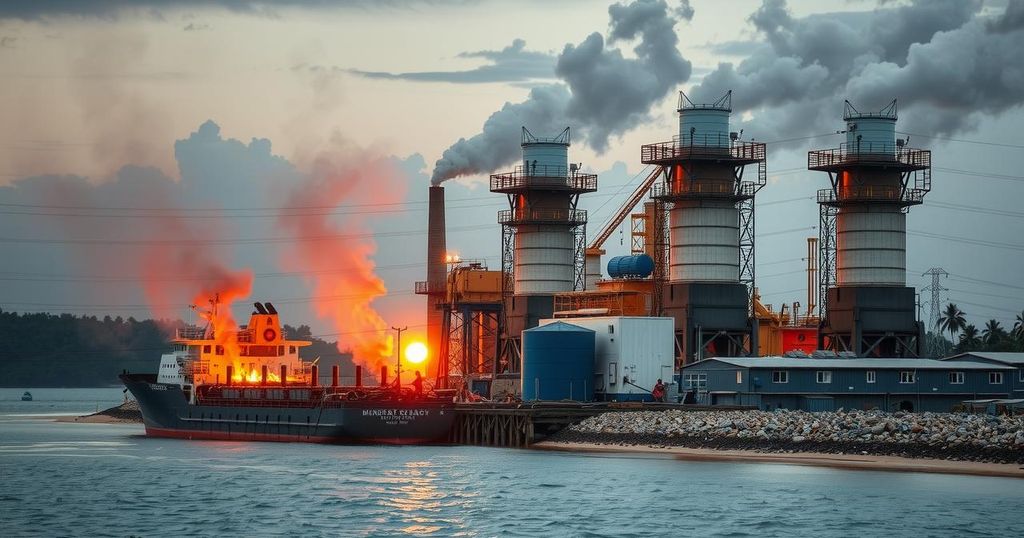Post-Election Unrest in Mozambique Disrupts Power Supply and Sparks Protests
Post-election protests in Mozambique have paralyzed two thermal power plants, leading to significant disruptions in energy supply. The unrest was triggered by the disputed election results favoring the ruling Frelimo party, with opposition claims of fraud escalating tensions. The situation has resulted in a serious energy deficit and ongoing clashes between protesters and security forces, raising concerns about political stability in the country.
Post-election protests in Mozambique have severely disrupted operations at two thermal power plants, as reported by the national utility, Electricidade de Moçambique. The unrest followed the declaration of the ruling Frelimo party as the winner of the October 9 elections, a result that has been widely denounced as fraudulent by opposition parties. Protesters, demanding a complete shutdown of energy production, led to an unprecedented halt in energy production at the Ressano Garcia and Gigawatt plants, which border South Africa.
The resultant shutdown has caused a significant energy supply deficit, affecting 30 percent of the demand in Mozambique’s southern region, which is home to approximately six million residents. Footage circulated on social media shows severe traffic disruptions around the affected plants, with intermittent border closures being reported by South African authorities in accordance with instructions from the Mozambican government.
Tensions have escalated as opposition leader Venancio Mondlane, who claims a prior assassination attempt, has confronted the official election results, which he alleges do not reflect the true vote count. While the electoral commission reports Frelimo’s Daniel Chapo won approximately 71 percent of the votes against Mondlane’s 20 percent, Mondlane asserts alternative counts indicate he received 53 percent. The Constitutional Council of Mozambique is expected to verify the election results in the coming weeks before the inauguration ceremony in January.
The backdrop to the protests in Mozambique involves decades of political tension and dissatisfaction with the ruling party, Frelimo, which has maintained power since the country’s independence in 1975. Recent elections, held on October 9, have sparked intense controversy, with allegations of vote-rigging and irregularities surrounding the results. Opposition figures, particularly Venancio Mondlane of the Podemos party, have faced increasing threats following their claims against the legitimacy of the elections. The unrest has thus culminated in protests that not only reflect political discontent but also impact vital infrastructure such as power supply, thereby exacerbating an already volatile situation.
In summary, the post-election protests in Mozambique have highlighted significant political unrest and challenges facing the ruling government. The paralysis of key power plants due to peaceful demonstrations underscores the critical connection between political stability and essential services. As tensions continue to rise with reports of violence and safety threats to opposition leaders, the outcome of the electoral verification by the Constitutional Council will be eagerly anticipated and could determine the nation’s immediate future.
Original Source: www.barrons.com




Post Comment